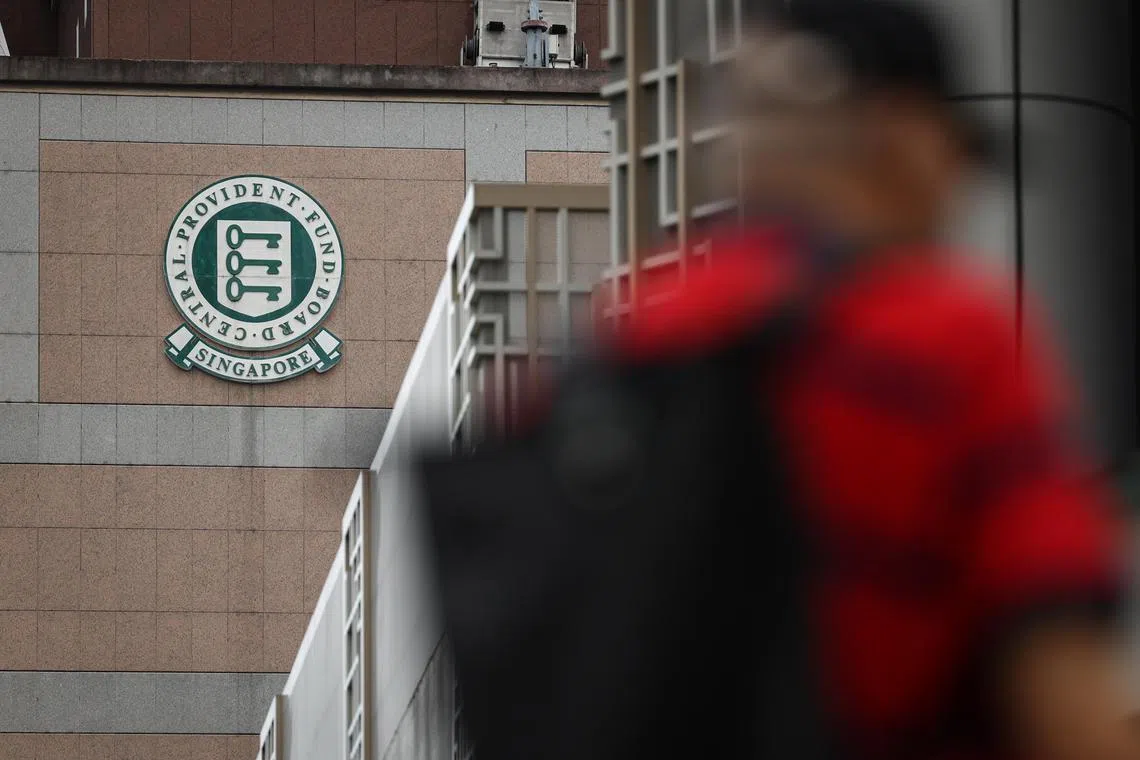MPs debate higher CPF monthly salary ceiling, call for further retirement savings boost
Sign up now: Get ST's newsletters delivered to your inbox

The move to raise the monthly CPF salary ceiling is meant to help middle-income Singaporeans save more for their retirement.
PHOTO: LIANHE ZAOBAO
Follow topic:
SINGAPORE - Having adequate savings for retirement was a topic of concern among MPs on Wednesday, as they debated Budget 2023, which included the move to raise the Central Provident Fund (CPF) monthly salary ceiling from $6,000 now to $8,000 in 2026
The move is meant to help middle-income Singaporeans save more for their retirement. There was consensus among the MPs on the need to boost retirement savings, but not all agreed that the ceiling shift was the right way to do so.
Workers’ Party MP Louis Chua (Sengkang GRC) said that while he welcomed the move, the CPF annual salary ceiling should be raised in tandem as well. The annual cap is currently set at $102,000.
This could mean higher contributions for some workers, while also possibly benefiting a wider group of workers.
Mr Chua noted that while the Government has said that it will review the annual salary ceiling periodically, he called for certainty and visibility on when exactly the change will take place.
He also said that for those affected by the move, the lower monthly take-home salary that results from the higher contribution could be a challenge, as they would face pressures of being in the sandwiched class.
Ms Jessica Tan (East Coast GRC) also raised the same point, citing a resident who was concerned about his lower take-home pay.
She said: “My resident did share that while employees do benefit in growing their retirement savings, in a time of pressing and increasing inflation, we must recognise that this results in less cash for their monthly spending.”
Mr Saktiandi Supaat (Bishan-Toa Payoh GRC) said the ceiling shift appeared to target workers earning more than $6,000 monthly, and asked if the Government considers this group to be at risk of not having adequate savings for retirement.
“One would expect this group to be capable of going out and investing in their own endowment insurance or other instruments for the longer term. Is it therefore necessary to mandate that such workers contribute a greater proportion of their wages to the CPF, considering the opportunity cost to these workers?” he said.
He added that the move could also add financial pressures on smaller firms, which will need to pay increased employer contributions.
With inflation a concern for many,
With aggressive rate hikes by the US Federal Reserve and increasing interest rates across central banks, Mr Saktiandi said the CPF Ordinary Account’s interest rate of 2.5 per cent and the Special and MediSave accounts’ interest rate of 4 per cent are “relatively unattractive compared to other investment options like fixed deposits”.
He then asked if there was any intention to revise these rates.
Singapore’s core inflation is projected to average 3.5 per cent to 4.5 per cent in 2023, and headline inflation to average 5.5 per cent to 6.5 per cent.
Leader of the Opposition and WP chief Pritam Singh (Aljunied GRC) proposed that with the salary ceiling shift, the Government should also simultaneously reconsider the percentage of CPF funds credited into the three CPF accounts.
He suggested that a higher proportion of the contributions be allocated to the Special Account instead of the Ordinary Account at an earlier age, given its higher interest rate.
Separately, several MPs also spoke on senior employability.
Ms Tan said that with inflation, businesses are facing increasing operating costs. She welcomed the move in Budget 2023 to provide additional support to employers to hire senior workers
She added that with the training and reskilling of seniors for suitable jobs being a challenge, it was heartening to know that the pilot for the Jobs-Skills Integrators
The Jobs-Skills Integrators scheme, announced in the Budget, will appoint institutions to help both workers and employers to identify high-quality courses that industries will find relevant.
Mr Singh also supported the extension of the SEC, but proposed to take this a step further by conducting studies on how the scheme can be enhanced to better motivate employers to hire seniors.
“In view of our rapidly ageing population, has the Government undertaken any studies to consider the fiscal impact of raising the SEC? There must be an upside for employers as we undertake this cultural shift towards making the workplace more family-friendly,” he said.


